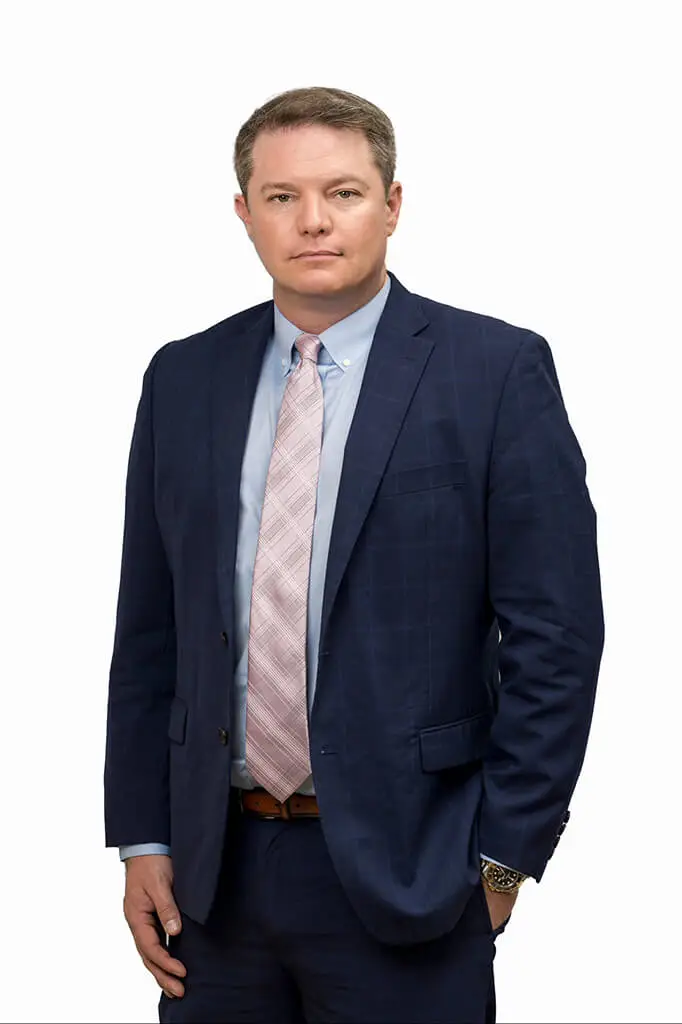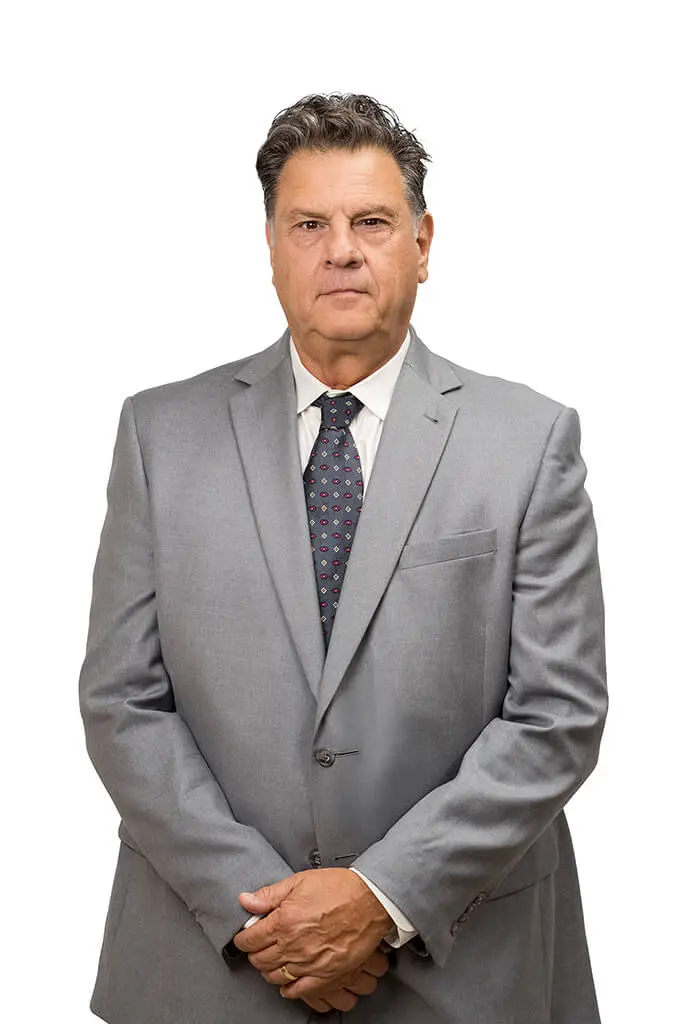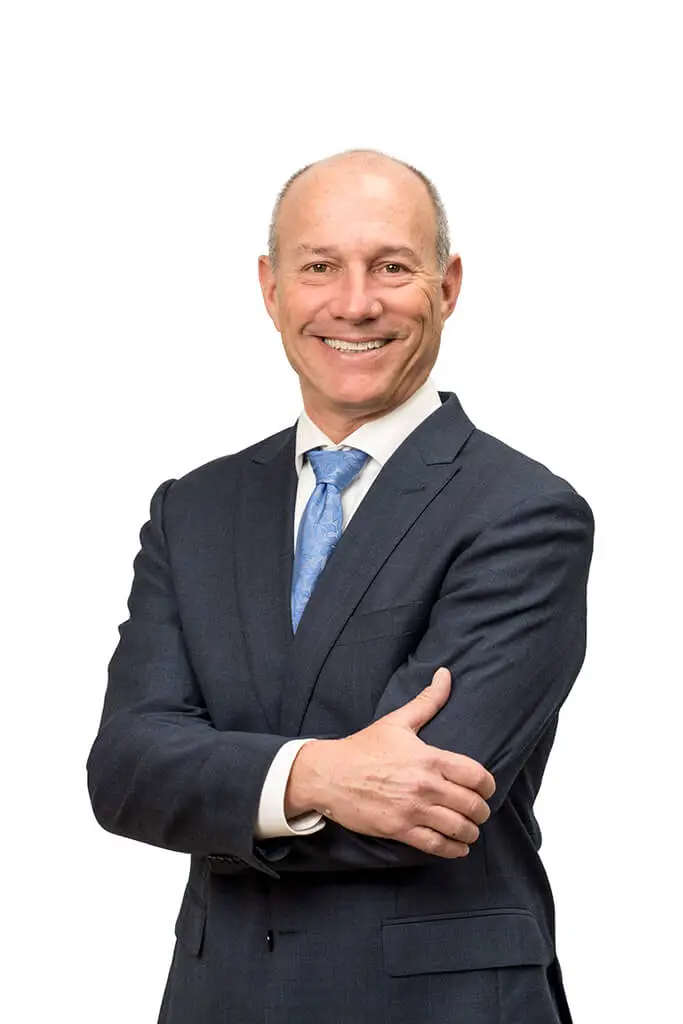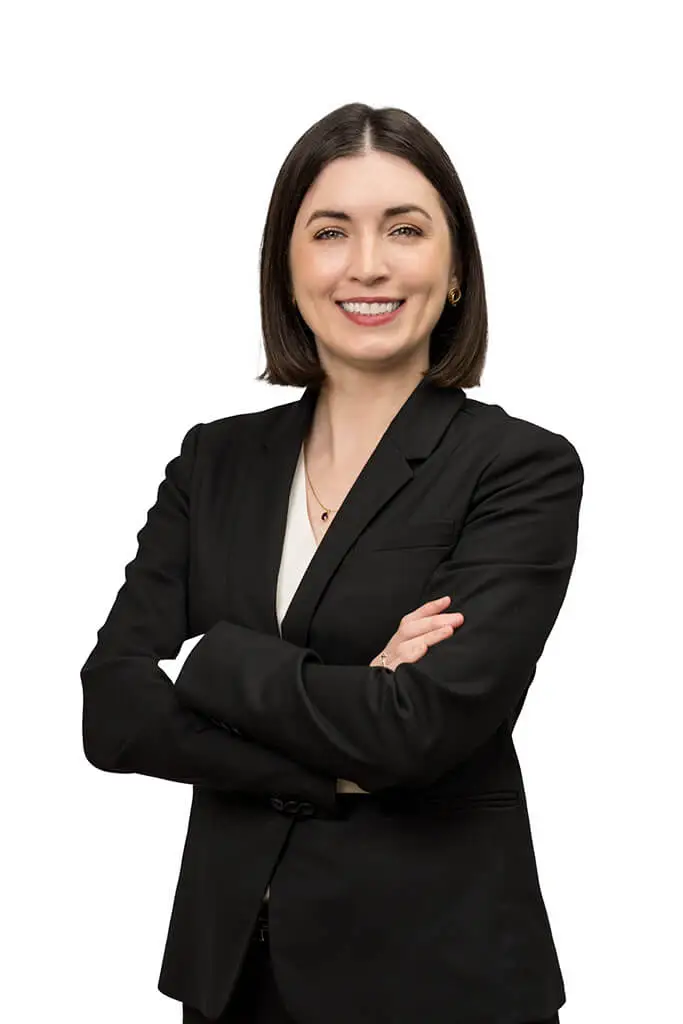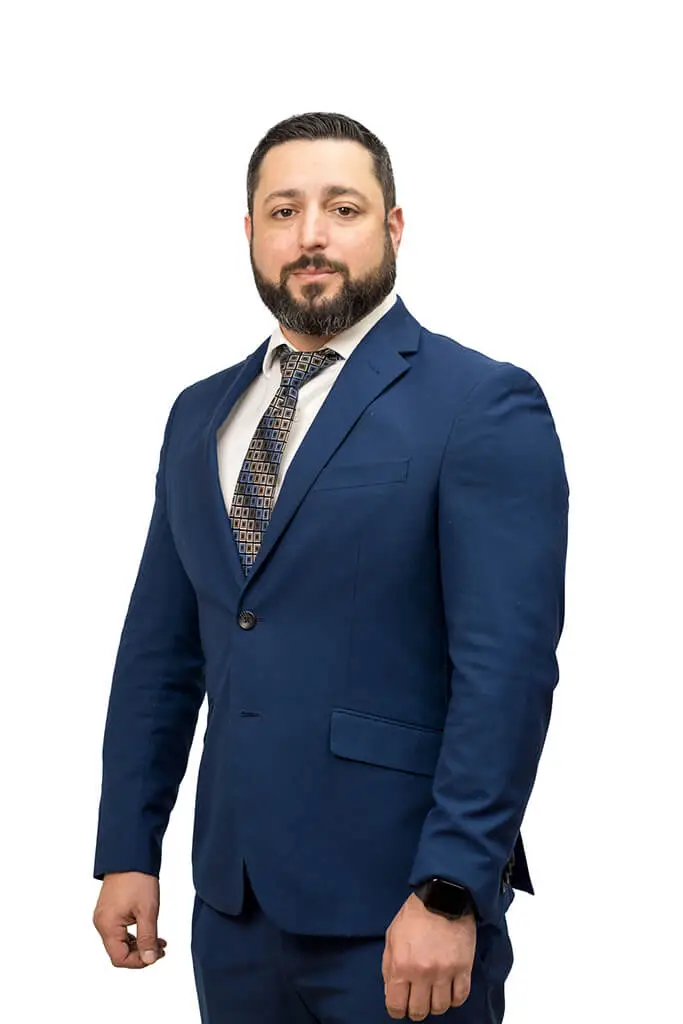Florida Injury Attorney Profiles
The Experts Behind Your Legal Success
A Team of Experienced Attorneys Working Tirelessly to Ensure Your Success
Client Testimonial
Ken and Dean are two of the best attorneys that you will ever know. They are both great guys and really work hard for you. The reason I'm leaving this review though is because they know how to get you... Read More
Dean is awesome! He just knows how to get you the best result possible. If you've been hurt in an accident that is not your fault, trust me, he's the guy that you want to call. Read More
Ken and his team are awesome! Very experienced and gets you the results you want. They will go the extra mile for you and your case. Highly recommend them! Read More
Ken was Great. He answered all of questions promptly and accurately. I couldn't have asked for a better experience. Read More
Dean Freeman is honestly the best attorney I have ever known! Great law firm. Read More
Can't complain these guys are great always there when you need them. Read More
From start to finish i was happy with all that the firm has done for my family very punctual and accurate always there when you need them day or night Read More
Need a Lawyer, call (800) 561-7777. Freeman Injury will get the job done! Read More
Antonio Nivis represented my case & I must say I was Quite Impressed! Not only was he great about keeping me updated on everything, he also made me feel very comfortable throughout my entire case. Very pleasant individual to speak... Read More
Antonio Nieves was the best! He called, left messages and even emailed me. He made communicating very easy! Any question I had he was there to answer, good advice as well! Thank you Antonio! Read More
Ken was great, I would recommend to anyone. Read More
Everyone was very professional, nice, and helpful. No question went unanswered! Overall, great experience! Read More
Fueron muy rapidos y profesionales. Les agradesco todo lo que hicieron. Y satisfecho con el resultado final. Read More
Definitely a five stars for a lack of an higher rating. I'm highly recommending this firm for their professionalism as well as for the time spent to listen and understand my case. I'm more than satisfied with the outcome as... Read More
I cannot thank Ken enough for all of his hard work and dedication while working on my case. He was there for me every step of the way and answered any question that I had day or night. He made... Read More
Sanja was great! Was kept updated consistently. Process was quick and easy. No complaints. Thank you! Read More
Attorney Rafael Gonzalez and his paralegal Miriam gave good customer service, very friendly, respectful and nice. Read More
Very professional and attentive team Miriam and Attorney Gonzalez were always willing to answer my questions and concerns and most of all always looking out for my best interest. Very satisfy. Read More
I just would like to think FREEMAN LAW for there hard work on my case and for doing and execellent job taking care of me thanks again James Read More
Freeman Injury provided excellent service and was extremely transparent throughout. Read More
The best help I have had regarding the case. Would highly recommend to anyone seeking auto I jury help Read More
Ken is absolutely amazing. He's completely down to earth and tells you exactly like it is. He gives you the good and the bad and that's what I appreciate. His staff does an amazing job and any questions you have... Read More
Wow, It's difficult to hold back tears, I don't know where to start and I'm trying not to get emotional while sending this testimonial. Working 10years for a company that I grew to love and respect not knowing that an... Read More
I had an awesome experience with this law firm. Rafael Gonzalez and Miriam are great all the time take the phone. Answer questions, always ready to help you. Being in an accident is already so stressful, they would help you... Read More
If i could i would give them an 11. Stellar service from Ken and Sanja. I would highly recommend them to anyone looking for an injury attorney. They make the process so easy. All you have to worry about is... Read More
Rafael Gonzalez and Miriam at freeman law firm, I will recommend them to every one because they are always there to serve their client and they are the best. Read More
Me gusto la forma como manejaron mi caso.. Pudieron culminarlo rapidamente y con buen resultado. Muchas gracias a Antonio Nieves y su equipo. Read More
My process was very long but it was worth the wait.The Freeman Law Firm and Mr. Gonzalez and Miriam are very professional and a great to work with. I will received updates as to my case frequently and I appreciate... Read More
I want to thank you all for sticking by me and my grandchildren, Aaron we appreciate you so very much. Jill thank you so much for also being by our side. I will always remember your kindness and patience and... Read More
From start to finish my lawyer at Freeman Injury Law was with me. She gave me her personal cell phone number so that i could reach her if i had any problems or worries. And the best part is they... Read More
Ken and Dean are two of the best attorneys that you will ever know. They are both great guys and really work hard for you. The reason I'm leaving this review though is because they know how to get you results and are very good at doing that. I can't say enough about them.
Dean is awesome! He just knows how to get you the best result possible. If you've been hurt in an accident that is not your fault, trust me, he's the guy that you want to call.
Ken and his team are awesome! Very experienced and gets you the results you want. They will go the extra mile for you and your case. Highly recommend them!
Ken was Great. He answered all of questions promptly and accurately. I couldn't have asked for a better experience.
Dean Freeman is honestly the best attorney I have ever known! Great law firm.
Can't complain these guys are great always there when you need them.
From start to finish i was happy with all that the firm has done for my family very punctual and accurate always there when you need them day or night
Need a Lawyer, call (800) 561-7777. Freeman Injury will get the job done!
Antonio Nivis represented my case & I must say I was Quite Impressed! Not only was he great about keeping me updated on everything, he also made me feel very comfortable throughout my entire case. Very pleasant individual to speak with. Professional & on top of all task presented. Thank you so much to Freeman & Especially Antonio for everything. I really appreciate your hard work and services you provided for me. I Highly recommend him for anyone else involved in any accidents.
Antonio Nieves was the best! He called, left messages and even emailed me. He made communicating very easy! Any question I had he was there to answer, good advice as well! Thank you Antonio!
Ken was great, I would recommend to anyone.
Everyone was very professional, nice, and helpful. No question went unanswered! Overall, great experience!
Fueron muy rapidos y profesionales. Les agradesco todo lo que hicieron. Y satisfecho con el resultado final.
Definitely a five stars for a lack of an higher rating. I'm highly recommending this firm for their professionalism as well as for the time spent to listen and understand my case. I'm more than satisfied with the outcome as I witnessed the team taking care of the matter as if it was theirs. Thanks a million. Hoping that the firm will grow bigger and that more of your clients will be as satisfied as I am.Team work always pays !!!
I cannot thank Ken enough for all of his hard work and dedication while working on my case. He was there for me every step of the way and answered any question that I had day or night. He made such a scary time in my life much more manageable and I am very grateful to have had him in my corner. I would recommend Freeman Injury Law's services to anyone, and in fact I have!
Sanja was great! Was kept updated consistently. Process was quick and easy. No complaints. Thank you!
Attorney Rafael Gonzalez and his paralegal Miriam gave good customer service, very friendly, respectful and nice.
Very professional and attentive team Miriam and Attorney Gonzalez were always willing to answer my questions and concerns and most of all always looking out for my best interest. Very satisfy.
I just would like to think FREEMAN LAW for there hard work on my case and for doing and execellent job taking care of me thanks again James
Freeman Injury provided excellent service and was extremely transparent throughout.
The best help I have had regarding the case. Would highly recommend to anyone seeking auto I jury help
Ken is absolutely amazing. He's completely down to earth and tells you exactly like it is. He gives you the good and the bad and that's what I appreciate. His staff does an amazing job and any questions you have they are on top of it.
Wow, It's difficult to hold back tears, I don't know where to start and I'm trying not to get emotional while sending this testimonial. Working 10years for a company that I grew to love and respect not knowing that an injury at work change my life suddenly. With great disappointment and fear, being treated poorly and unjustfully, I was deeply sad, hurt, and surprised. I didn't know where to turn, I prayed and prayed...One day driving home, I saw a sign that said trust FREEMAN INJURY LAW. Something in my spirit said TRUST them...It was very hard for me to TRUST anyone..I 1st spoke with Antonio who told me that one of his colleagues would take care of me...My anxiety was very high and with GREAT FEAR [I had] because of what I had just gone through not knowing who to trust,I took a leap of Faith. I pray that the FREEMAN Injury Law TEAM are blessed exceedingly GREAT for all that you have done for me and what you all do in the community. My experience may have bruised or may have left a scar but I am not broken all because of you and the Freeman Injury Law Group.. Thanks for Eternity-Gran Bendicion.
I had an awesome experience with this law firm. Rafael Gonzalez and Miriam are great all the time take the phone. Answer questions, always ready to help you. Being in an accident is already so stressful, they would help you with everything you need: guide you with your doctors visits, give you an advise all the time. I strongly recommend them for ALL your situations. Love them!!!!
If i could i would give them an 11. Stellar service from Ken and Sanja. I would highly recommend them to anyone looking for an injury attorney. They make the process so easy. All you have to worry about is going to treatment and getting better and they take care of the hard stuff. The result at the end of the case speaks for itself.
Rafael Gonzalez and Miriam at freeman law firm, I will recommend them to every one because they are always there to serve their client and they are the best.
Me gusto la forma como manejaron mi caso.. Pudieron culminarlo rapidamente y con buen resultado. Muchas gracias a Antonio Nieves y su equipo.
My process was very long but it was worth the wait.The Freeman Law Firm and Mr. Gonzalez and Miriam are very professional and a great to work with. I will received updates as to my case frequently and I appreciate all the updates. Thank you very much for handling my case.
I want to thank you all for sticking by me and my grandchildren, Aaron we appreciate you so very much. Jill thank you so much for also being by our side. I will always remember your kindness and patience and most of all your compassion that you both had for us, I was surely recommend your Law Firm to anyone I know. God bless you all :-)
From start to finish my lawyer at Freeman Injury Law was with me. She gave me her personal cell phone number so that i could reach her if i had any problems or worries. And the best part is they got the amount that I thought was sufficient to close my case.
